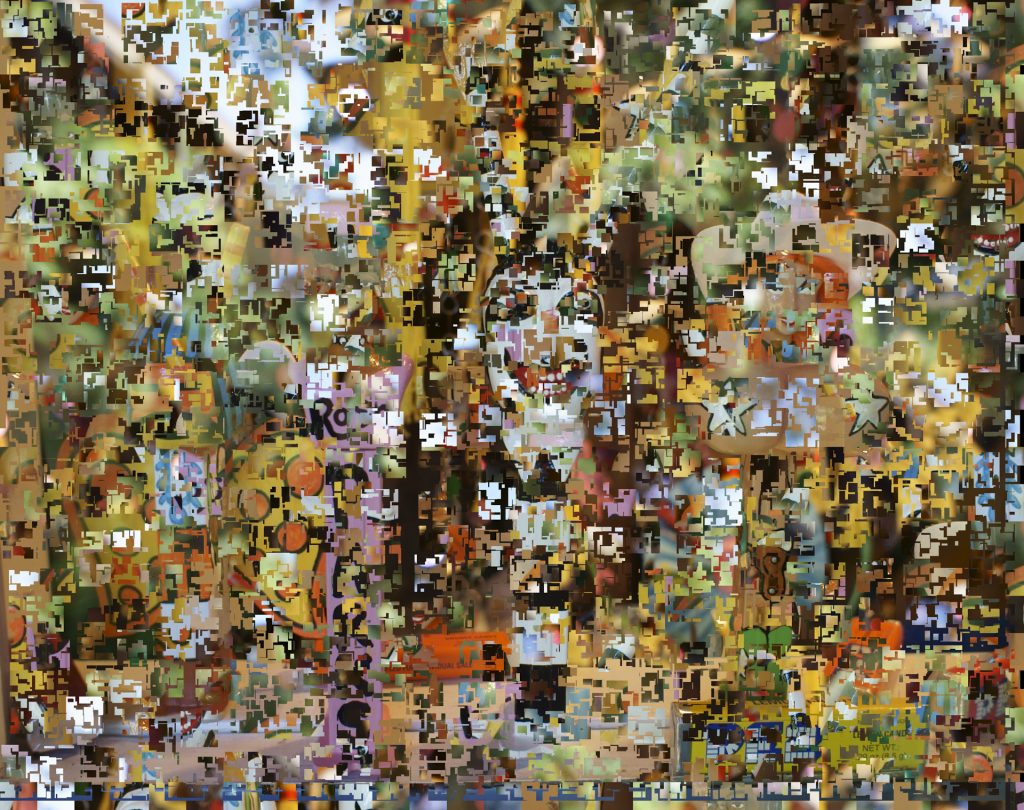Yesterday, I posted all the images that I entered in the Center for Photographic Art’s 2016 Juried Exhibition.
Here’s the one the juror picked:
This is an image of a bunch of Pez dispensers in the window of a shop in Santa Fe. It has been extensively reworked at the hands of a Matlab program that I wrote. I consider it experimental, and have never displayed it on the web before. In fact, I’ve never even printed it.
The images that I submitted that I was the most excited about were from the series From my Window. Of course, a photographer tends to like his most recent work. And then there’s the fact that this was a single-image show, and the window series needs to be appreciated as a collection of images from a tightly constrained location. But I wonder if photographers making landscape these days aren’t operating with a handicap. There are so many excellent landscapes out there, and have been for so long, that sophisticated jurists may be jaded.

Jadedness is a real problem, as is novelty seeking. My diagnosis of what went wrong with non popular music from the mid twentieth century is that the urge for novelty was so strong that after Schoenberg everyone was expected not only to invent novel pieces, but completely novel styles or even genres as well. So no style had time to settle in ….